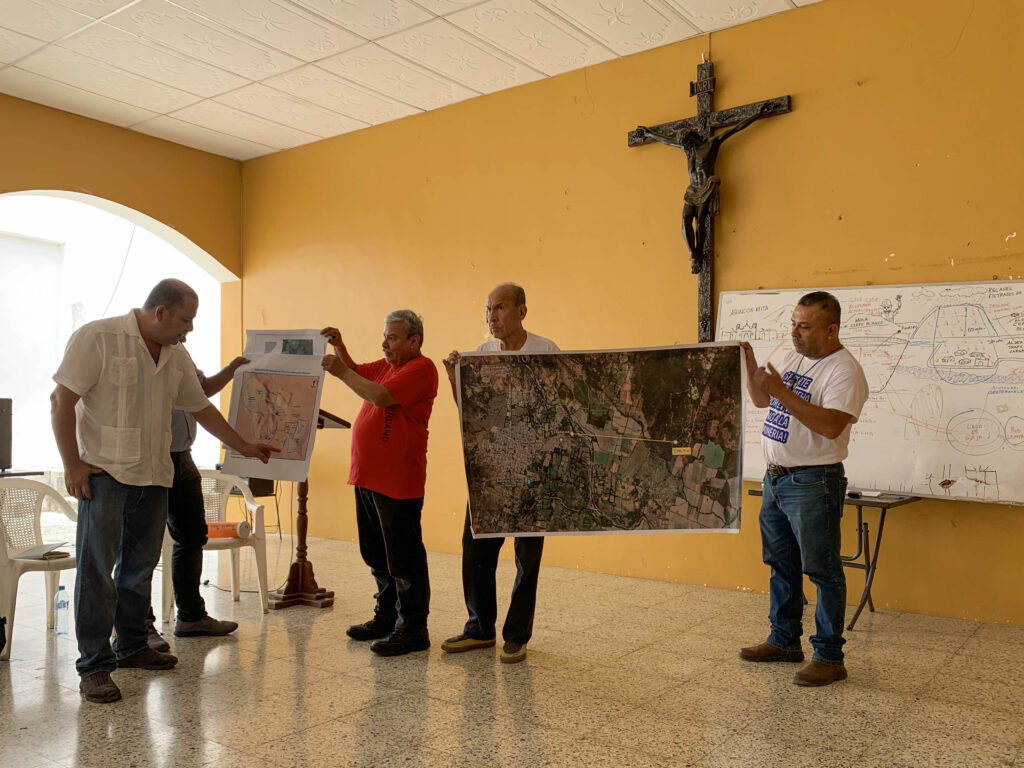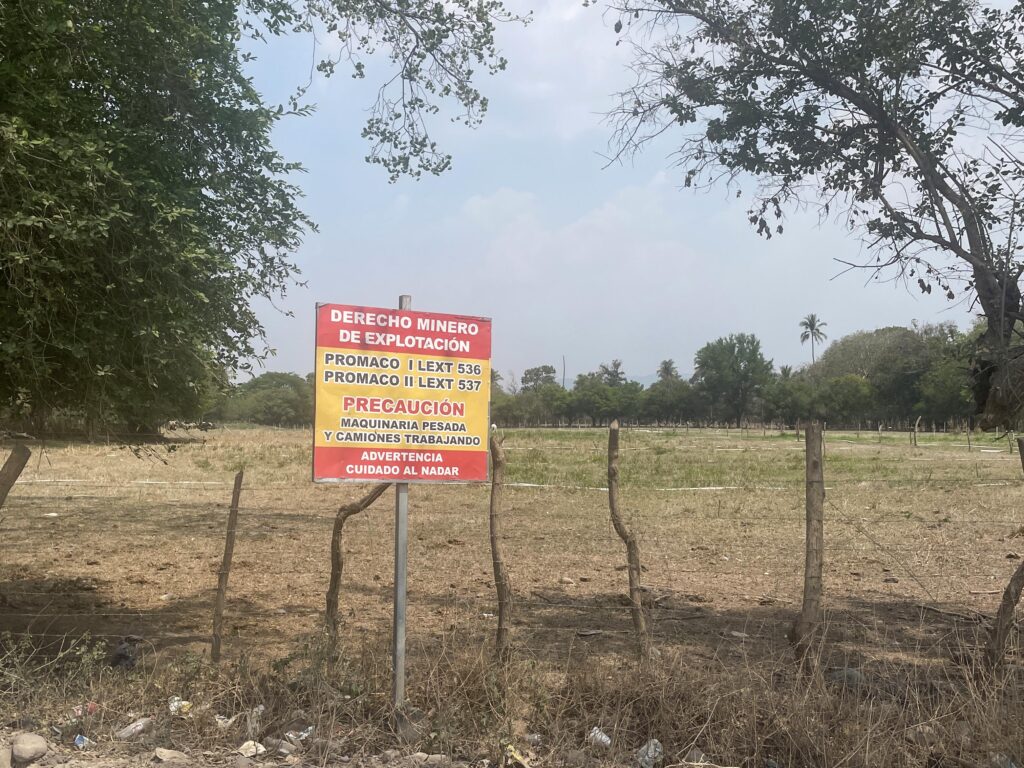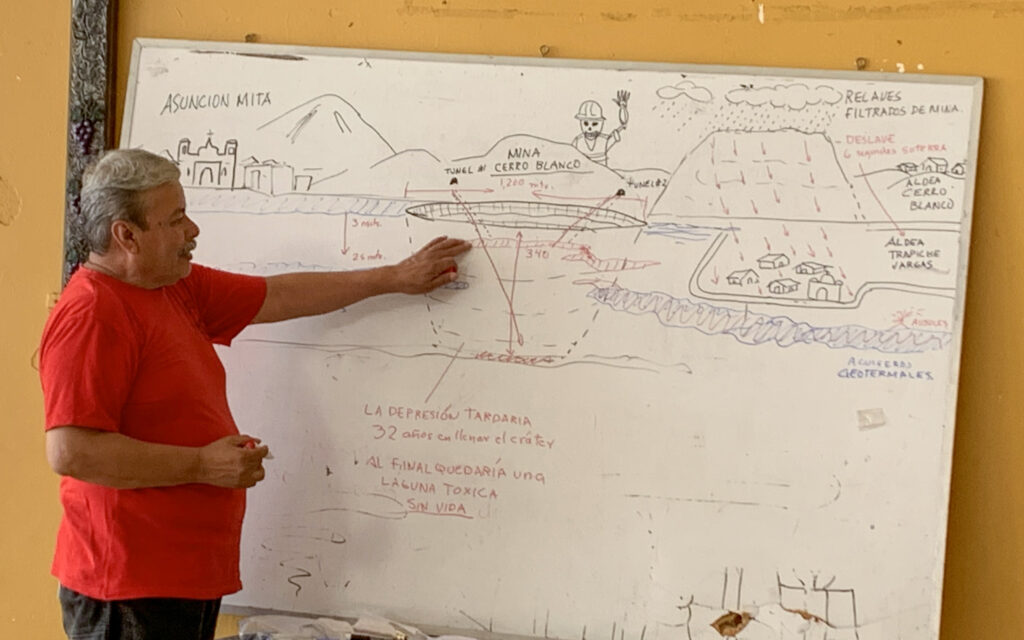In May, Franciscans International visited four communities in Guatemala that experience severe pollution due to the activities of extractive industries. In the Sacatepequez, Santa Rosa, El Progreso, and Jutiapa departments, mining has created a broad range of issues, ranging from water contamination by arsenic and other pollutants to rising tensions within communities. Those standing up against the harm caused face opposition from the authorities, economically powerful companies, and other community members who depend on the mines for their livelihoods.
As part of the mission, the FI delegation took part in a workshop for “Guardians of the Common Home”, a Franciscan effort to create a network for those interested in the newly recognized human right to a healthy environment. We also seized the opportunity to meet with other civil society organizations and human rights defenders to discuss how FI can strengthen their ability to raise issues related to corporate impunity at the United Nations and how their experiences can help inform the ongoing negotiations on a binding treaty on business and human rights.



The issue of corporate impunity fits within a larger trend in Guatemala, which has seen a steady decline in its human rights situation in recent years. Attacks against, and the criminalization of, human rights defenders and environmental activists have become routine. The cooptation of the judiciary by special interests has weakened domestic avenues for accountability. Indigenous communities have been disproportionally affected by these trends and have routinely been denied their right to grant or withhold free, prior, and informed consent to the development of large industrial and agricultural projects on their lands.
We also used the country visit to meet with the Guatemalan members of the Franciscan Network on Migration (FNM). Although most migrants only transit through the country on their way north, many have recently crossed the deadly Darian Gap – described by one migrant as “hell on earth”. Franciscans offering support in the FNM shelters are documenting the traumatic experiences of migrants, including stories of abuse, exploitation, and extortion. While doing their work, which includes distributing food and medicine to mothers and their infant children, the Franciscans have repeatedly faced threats from gangs.



FI has consistently raised the deteriorating human rights situation in Guatemala through various UN mechanisms. Although a new administration was elected in June 2023, promises of reform have yet to materialize at the grassroots and the information gathered during this mission will serve to further strengthen our advocacy efforts. Meanwhile, FI will also continue to build and reinforce the capacity of Franciscans, their civil society partners, and Indigenous communities to document human rights violations and address these at both the domestic and international levels.

